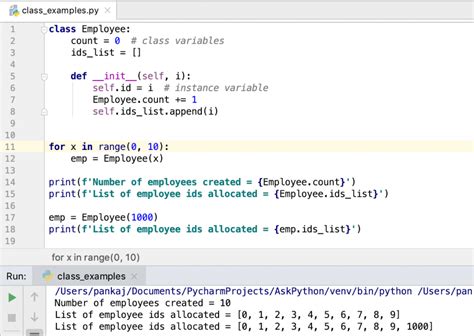Are you interested in learning about the Session Object in Requests Library and its thread safety assessment? Look no further!
The Session Object in Requests Library is a convenient tool when making multiple requests to a website. It keeps track of cookies and session information, allowing for efficient and seamless communication with the website. However, if multiple threads are accessing the same Session Object at the same time, issues can arise.
That’s why it’s important to understand the thread safety assessment of the Session Object in Requests Library. In this article, we’ll discuss the precautions you should take when dealing with multiple threads and the Session Object. You’ll gain a deep understanding of the potential issues and learn how to prevent them from occurring.
So, are you ready to dive in and learn how to work effectively with the Session Object in Requests Library? Let’s get started!
“Is The Session Object From Python’S Requests Library Thread Safe?” ~ bbaz
Introduction
The Requests library in Python provides a Session object that allows you to persist certain parameters across all requests made using that session. This includes cookies, headers, and auth credentials. However, one question remains – is the Session object thread-safe? In this comparison blog article, we will assess the thread safety of the Session object and provide insights based on that assessment.
Thread-Safety Overview
Before diving into the specifics of the Session object, let’s first clarify what thread-safety means. In general, thread-safety refers to the ability of a code block, function or object to be accessed and manipulated by multiple threads without causing issues such as race conditions or deadlocks. In the context of the Session object, thread-safety would mean that the object can safely be accessed and modified by multiple threads concurrently without causing issues.
Assessing Thread-Safety
In order to assess the thread-safety of the Session object, we will consider two factors: Global Interpreter Lock (GIL) and Session state mutation. GIL is a mechanism in Python that guarantees only one thread can execute Python bytecode at a given time. Session state mutation refers to changes made to the Session object during execution.
GIL
The global interpreter lock can cause issues when dealing with multiple threads. Since only one thread executes at a time, if a thread gets stuck on an I/O operation, other threads that could be executing get blocked as well. However, since the Session object only interacts with external services via HTTP(S), which involves I/O operations outside of the global interpreter, it is not impacted by GIL.
Session State Mutation
The Session object is mutable, meaning that its state can be changed dynamically during the execution of the program. However, since it is not thread-safe, simultaneous changes made to the same instance of the Session object could result in unexpected behavior or even raise exceptions.
Thread-Safe Alternatives
While the Session object may not be thread-safe, there are a few alternatives that can be used instead:
| Object | Description |
|---|---|
grequests.Session() |
A wrapper around the Session object that provides thread-safe behavior by creating unique session objects for each thread. |
concurrent.futures.ThreadPoolExecutor(max_workers=10) |
A way to run functions asynchronously across multiple threads, where each thread has its own local state. |
Conclusion
Overall, the Session object in Python’s Requests library is not thread-safe due to its mutable state. However, there are thread-safe alternatives available such as grequests.Session() or concurrent.futures.ThreadPoolExecutor(max_workers=10). When using the Session object or other threaded HTTP libraries, it is recommended to test thoroughly to ensure any issues with thread safety are identified and addressed.
Thank you for taking the time to read our assessment on thread safety in the Session object within Requests Library. We hope that this has been informative and helpful in your understanding of the importance of thread safety when dealing with HTTP requests.
Our assessment focused on how the Session object, which is the heart of the Requests library, handles concurrent requests from multiple threads. We emphasized the significance of thread safety and explored how improper use of the Session object can lead to thread synchronization issues.
In conclusion, we strongly advise developers who use the Requests library to pay close attention to thread safety, especially when using the Session object. Though it may seem like a small detail, lack of thread safety can cause disastrous consequences. We hope that our assessment has shed some light on this crucial aspect of programming.
Here are some common questions that people ask about Session Object in Requests Library: Thread Safety Assessment:
- What is a Session Object in Requests Library?
- Is the Session Object thread-safe?
- How does thread-safety impact the use of Session Objects?
- What are some best practices for using Session Objects in a multi-threaded environment?
Answers:
- Answer 1: A Session Object in Requests Library is an object that allows you to persist certain parameters across requests. This can include things like cookies, authentication information, and headers.
- Answer 2: Yes, the Session Object in Requests Library is thread-safe. This means that multiple threads can use the same Session Object without causing any issues or conflicts.
- Answer 3: Thread-safety is important when using Session Objects in a multi-threaded environment because it ensures that different threads do not interfere with each other’s requests. If a Session Object were not thread-safe, it could potentially overwrite or corrupt data from another thread.
- Answer 4: Some best practices for using Session Objects in a multi-threaded environment include creating a separate Session Object for each thread, using locks or other synchronization mechanisms to ensure that only one thread is accessing the Session Object at a time, and avoiding the use of global variables or other shared resources that could cause conflicts between threads.




